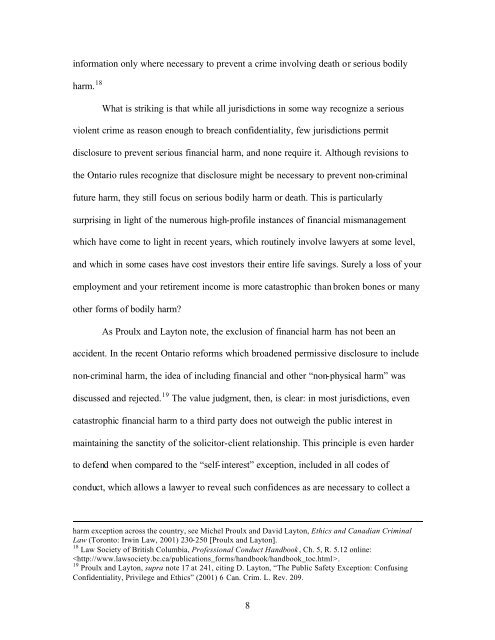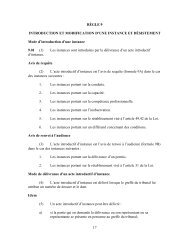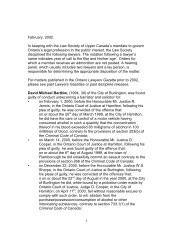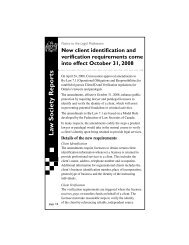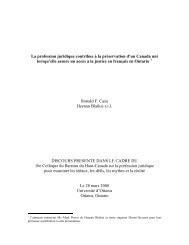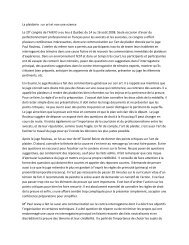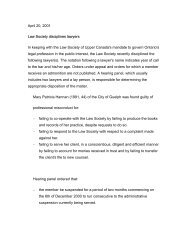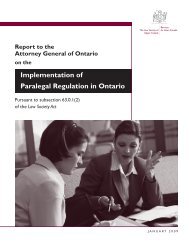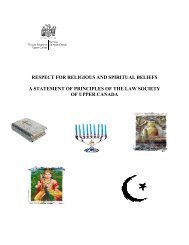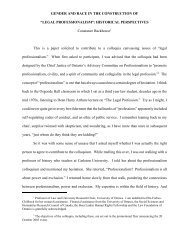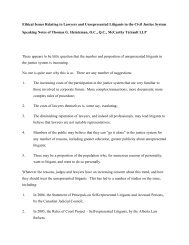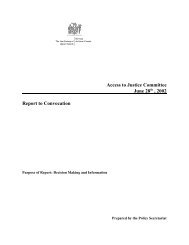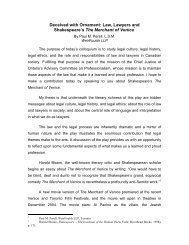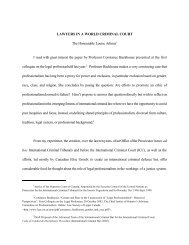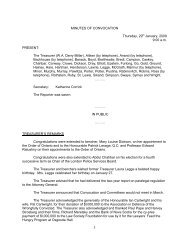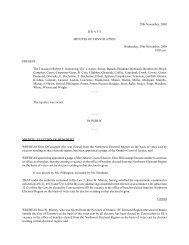of self regulation? - The Law Society of Upper Canada
of self regulation? - The Law Society of Upper Canada
of self regulation? - The Law Society of Upper Canada
Create successful ePaper yourself
Turn your PDF publications into a flip-book with our unique Google optimized e-Paper software.
information only where necessary to prevent a crime involving death or serious bodily<br />
harm. 18 What is striking is that while all jurisdictions in some way recognize a serious<br />
violent crime as reason enough to breach confidentiality, few jurisdictions permit<br />
disclosure to prevent serious financial harm, and none require it. Although revisions to<br />
the Ontario rules recognize that disclosure might be necessary to prevent non-criminal<br />
future harm, they still focus on serious bodily harm or death. This is particularly<br />
surprising in light <strong>of</strong> the numerous high-pr<strong>of</strong>ile instances <strong>of</strong> financial mismanagement<br />
which have come to light in recent years, which routinely involve lawyers at some level,<br />
and which in some cases have cost investors their entire life savings. Surely a loss <strong>of</strong> your<br />
employment and your retirement income is more catastrophic than broken bones or many<br />
other forms <strong>of</strong> bodily harm<br />
As Proulx and Layton note, the exclusion <strong>of</strong> financial harm has not been an<br />
accident. In the recent Ontario reforms which broadened permissive disclosure to include<br />
non-criminal harm, the idea <strong>of</strong> including financial and other “non-physical harm” was<br />
discussed and rejected. 19 <strong>The</strong> value judgment, then, is clear: in most jurisdictions, even<br />
catastrophic financial harm to a third party does not outweigh the public interest in<br />
maintaining the sanctity <strong>of</strong> the solicitor-client relationship. This principle is even harder<br />
to defend when compared to the “<strong>self</strong>-interest” exception, included in all codes <strong>of</strong><br />
conduct, which allows a lawyer to reveal such confidences as are necessary to collect a<br />
harm exception across the country, see Michel Proulx and David Layton, Ethics and Canadian Criminal<br />
<strong>Law</strong> (Toronto: Irwin <strong>Law</strong>, 2001) 230-250 [Proulx and Layton].<br />
18 <strong>Law</strong> <strong>Society</strong> <strong>of</strong> British Columbia, Pr<strong>of</strong>essional Conduct Handbook , Ch. 5, R. 5.12 online:<br />
.<br />
19 Proulx and Layton, supra note 17 at 241, citing D. Layton, “<strong>The</strong> Public Safety Exception: Confusing<br />
Confidentiality, Privilege and Ethics” (2001) 6 Can. Crim. L. Rev. 209.<br />
8


